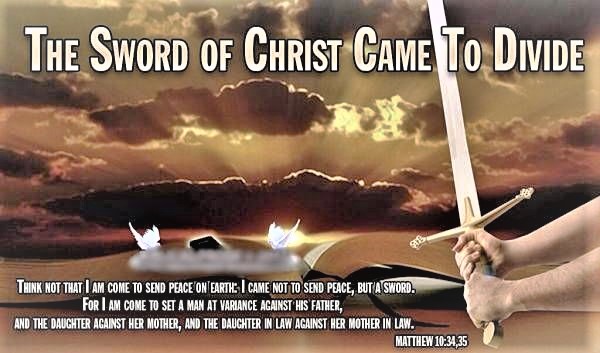“THE MORE OF US CHOOSE TO STAY SILENT, THE MORE DANGEROUS IT BECOMES FOR THE FEW WHO CONTINUE SPEAKING OUT”
republished below in full unedited for informational, educational, and research purposes:
Gathered in Copenhagen “for a conference of terror attack
survivors, artists and journalists vowed to continue fighting for free
speech, despite a wave of violence targeting critical voices.”
campaigner and warns that the more Westerners are silenced, the more
dangerous it becomes for those who speak out. She is right, but it will
not stop there. Jihadists will continue to expand their activities until
no one can escape them. Sharia requires that every infidel submit and
bow to it.
dhimmitude. Already, Islamic supremacists have managed to force their
values upon infidels through their “Islamophobia” drives. All religions
can be criticized, but not Islam; human beings can be violated and
murdered in accordance with Islamic religious edicts, while infidels
must “shut up for the good of diversity.”
surrendering the banner of freedoms and hard-earned Judeo-Christian
principles to Islamic supremacists.

“The Terror Attack Survivors Who Refuse To Be Silenced”, Agence France-Presse, January 14, 2018:
COPENHAGEN: Gathered in the Danish capital for a
conference of terror attack survivors, artists and journalists vowed to
continue fighting for free speech, despite a wave of violence targeting
critical voices.“We are all targeted, indiscriminately, and the more of us choose to
stay silent, the more dangerous it becomes for the few who continue
speaking out, like me,” said Zineb El Rhazoui, a 35-year-old journalist
from French satirical magazine Charlie Hebdo.She was on holiday on January 7, 2015, when jihadists broke into the
Paris offices of the magazine, massacring 12 people in an attack that
shook France and the world.The assault sparked mass protests and a wave of solidarity, with
people across the world adopting the slogan “Je suis Charlie” (I am
Charlie).“The more of us speak out, defend our freedom and refuse to give up
on our liberties, the less the danger will be … focused on certain
people,” El Rhazoui told AFP on the sidelines of a conference hosted by
the Danish parliament on Saturday.Her commitment to her beliefs has not come without a cost; everywhere she goes, she is accompanied by security guards.
Swedish cartoonist Lars Vilks, who in 2007 sparked controversy with
his drawings of Muslim Prophet Mohammad, said nothing would change if he
stopped working.“If you stop, the things going on will not stop,” Vilks said.
He has also been the target of several attempted assaults, the latest
in Copenhagen in February 2015, during a conference dubbed “Art,
blasphemy and freedom”.‘That was it’
Like El Rhazoui, Vilks leads a complicated life. Under constant
surveillance, he must coordinate with his security guards in order to
plan his day.“If I have forgotten to buy some milk, I cannot actually go out and
buy the milk, and I cannot in practice call the bodyguards and say ‘I
want to buy some milk’,” he said.“As a film … you have to plan your days in a certain way,” the 71-year-old added.
But after surviving an attack, some people choose to move away from activism.
Patrick Piscot was just 18 years old when he survived the July 2011
bomb and gun massacre by Norwegian neo-Nazi Anders Behring Breivik that
left 77 people dead.Breivik was sentenced in 2012 to 21 years behind bars.
“If you survive something I believe that it is your responsibility to
get over it in your own way, you have the key to how you want to change
your life,” said Piscot, who decided to ended his political activism
soon after the attack.“I continued to participate in AUF (the Workers’ Youth League in
Norway) for three weeks or months after the massacre, but that was it…..
